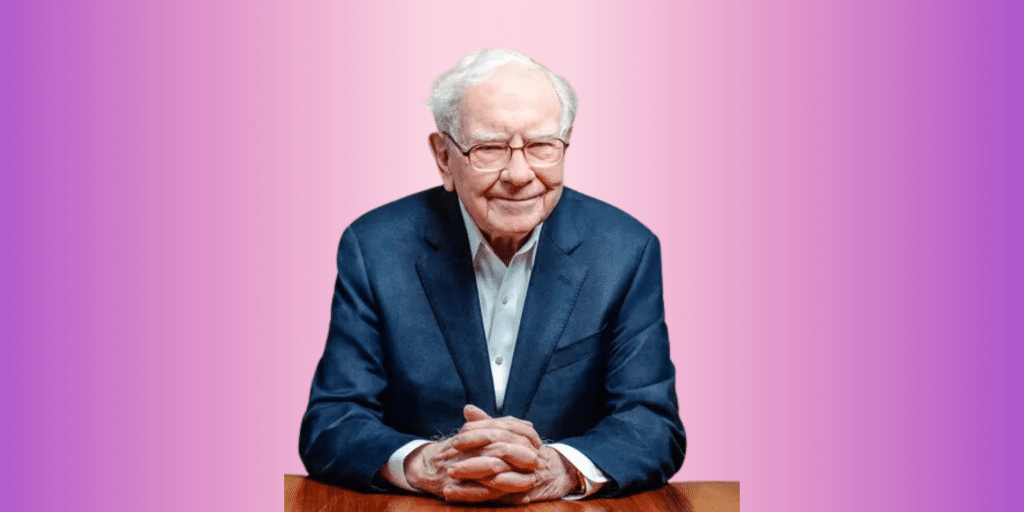“In my office, you will not see the degree that I got from the University of Nebraska. You will not see the master’s degree I got from Columbia University. But you will see the award certificate I got from the Dale Carnegie Course,” – Becoming Warren Buffett.
Warren Buffett, one of the most successful investors in history, has spoken about his early fear of public speaking and how he overcame it. He attributes his decision to improve his public speaking skills to a pivotal moment in his life.
Buffett was initially a very shy and introverted individual. He had a strong fear of public speaking, which he considered a significant impediment to his career. The story he often tells is about how he enrolled in a public speaking course at Dale Carnegie’s Institute.
Buffett didn’t overcome his stage fright in an instant. You may not know this: He actually signed up for a public-speaking course run and dropped out before it started–because he was afraid of public speaking!
He completed the Dale Carnegie course on his second try. The certificate he proudly displays in his office reads: “Warren E. Buffett has successful completed the Dale Carnegie Course in effective speaking, leadership training, and the art of winning friends and influencing people. January 13, 1952.”
Buffett followed up the course by teaching an investment class at a local college.
He realized that he needed to shore up his confidence by just doing it–over and over in front of small groups.
At our public speaking workshops we rely on “exposure therapy” as one of the most effective techniques to treat anxiety. Buffett was performing a form of exposure therapy on himself–putting himself in more frequent anxiety-providing situations, like speaking in front of a small group of students or teaching a class. Eventually, familiarity with a stressful situation alleviated the fear.
Buffett has been quoted saying:
“I would have paid $100,000 for a course on public speaking if it had been available at the time I started out. Nothing in life is more important than being able to communicate effectively.”
Buffett’s public speaking course with Dale Carnegie not only helped him conquer his fear but also greatly improved his ability to communicate and present his investment ideas to others. This, in turn, contributed to his career success as an investor.
In essence, Buffett recognized the importance of effective communication, both in terms of sharing his investment insights and building relationships with clients and shareholders.
Overcoming his fear of public speaking was a pivotal moment that allowed him to better convey his ideas and investment principles, which contributed significantly to his legendary status in the world of finance. This story serves as a reminder of the value of communication skills in various aspects of life and career success.
Buffett has offered several pieces of advice to students and others about public speaking over the years. His insights on this topic often revolve around the importance of effective communication and the benefits of developing strong public speaking skills. Here are some of his key pieces of advice:
1. Invest in Yourself:
Buffett frequently emphasizes the value of investing in yourself through education and skill development. He suggests that students should view public speaking as an essential skill worth honing, even if they’re initially uncomfortable with it.
2. Overcome Fear:
Buffett acknowledges that public speaking can be intimidating, especially for those who fear it. He advises students to face their fear head-on by practicing and gradually building confidence through experience.
3. Join a Public Speaking Class:
Buffett has recommended joining workshops which focus on improving public speaking and leadership skills. He stresses the importance of practice. He advises students to practice public speaking frequently, whether through formal presentations, impromptu speeches, or even just casual conversations.
4. Focus on the Audience:
Buffett emphasizes the importance of considering the needs and interests of the audience. Tailoring the message to the audience’s level of understanding and concerns can make a presentation more effective.
5. Keep Learning:
Buffett believes that learning is a lifelong journey. He encourages students to continue improving their public speaking skills throughout their careers, as effective communication is a valuable asset in many professions.
In essence, Warren Buffett’s advice on public speaking centers on the idea that effective communication is a skill that can be developed and refined over time. He encourages students to take steps to overcome their fear, invest in their own growth, and continually work on improving their ability to communicate clearly and persuasively.

